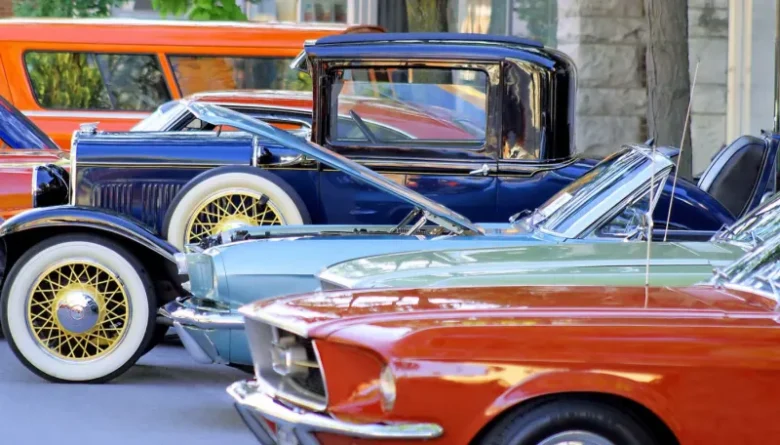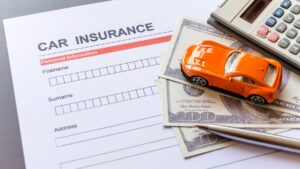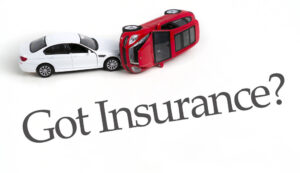Owning a classic car is more than just owning a vehicle; it’s about having memories, celebrating the past, and making a statement on the road. Be it an ancient Mustang or an old Mercedes-Benz model, your vintage car deserves some special attention especially when it comes to insurance. Standard auto policies might not be adequate for these gorgeous machines which appreciate with time. So how do you ensure that your investment is secured while giving you peace of mind? Let us analyze what classic car insurance entails and make sure that your beloved automobile stays secure on the road for years.
The Advantages of Insuring Your Classic Car
Having a classic car is not only having something to travel with but rather feeling passionate about something and being proud of yourself. By ensuring your classical vehicle, you will have a piece of mind knowing that you are protecting your valuable assets against risks. One major advantage is economic safety. Vintage cars can accumulate in value over time, hence becoming more susceptible to theft or damage by ill-intended persons. Insurance ensures that in case of an accident, one does not suffer from devastating losses.
Many specialized policies offer unique coverage options tailored specifically towards vintage cars including agreed value coverage where the policy amount reflects the actual worth of the machine instead of its market price per se.
Apart from that, ensuring your classic ride gives you access to resources like roadside assistance as well as restoration services- all crucial assets loved by any enthusiast who owns a prized possession like this one. Several insurers give discounts for small annual mileage driven, meaning minimal expenditure for maximum protection offered.
Types Of Coverage For Classic Cars
When considering taking out insurance for a classic motor vehicle there are different forms of coverage available that should be understood among them all serve specific needs unique to classics Agreed value coverage tends to be popular among collectors because it eliminates depreciation considerations should one’s car get totaled by ensuring that a predetermined amount will be paid out.
Liability coverage is another essential type. It safeguards you against any damages or injuries that you may cause to others when driving your classical car. Also, there are comprehensive and collision policies which are very important. Comprehensive covers all forms of non-collision such as theft or vandalism while collision compensates for damage resulting from a crash irrespective of who is at fault.
Qualifications for Classic Car Insurance
To qualify for classic car insurance, there are some minimum requirements that your vehicle should usually meet. Usually, most insurers consider a classic car as being over 15 years old and in good condition. Mileage too plays a role since many policies require limited annual mileage typically between 2,500-5,000 miles per annum; this in turn upholds the value of the vehicle and deters it from being used daily.
Storage is another factor. Insurers often look for secure parking options like garages or dedicated carports. Safe locations help reduce risk and lower premiums can be expected as well. Proof of ownership will also be required together with photos depicting its state and condition if possible especially if one intends to have it insured in rival companies. Some insurers would even request an appraisal from an expert appraiser specializing in classic automobiles if the need arose
Choose the Right Insurance Company
When choosing insurance for your vintage car, can be a daunting task. First of all, check out insurers that focus on classic and/or vintage vehicles. They are aware of the unique needs collectors have. You can go online to see what customers say in their reviews and ratings about this. It is often a good idea to go with an insurer that has built a reputation over time because it means they have proven to be reliable when you need them most hence look at the company’s history. Another good source of information is other classic car owners; ask around.
Avoid focusing solely on the price aspect but compare quotes from various providers instead. Find out if they offer comprehensive coverage, deductible amount, or limit involved before choosing any one of them. Also, consider how fast the insurer responds right from the start during initial interactions with them under such circumstances since a swift response can imply superior customer service later on down the line (future). Ask if there are any discounts or privileges meant for people who drive antique models only. For instance, some organizations give their members things like road assistance while others provide agreed value covers which are ideal for collectors.
How to Preserve Your Classic Car’s Value
You must pay attention and take care of it if you want your vintage car to maintain its worth as time goes by too quickly and unknowingly slips away into obsolescence. Start doing regular maintenance checks on your vehicle now and then. Ensure that all these systems mentioned above viz engine brakes suspension among others are in order. Furthermore, thorough detailing is important as well. Cleaning it regularly prevents fading paintwork as well as corrosion.
You also need proper storage techniques if you want to maintain its value over time (Preston 122). A climate-controlled garage would help you minimize rusting caused by humidity or extreme cold/heat damage. Besides, keeping records helps as much as physical upkeep does. It is prudent to document every repair, modification, or restoration made on it so that when the time comes for you to sell your car, buyers will know its history. You can also join forums and/or clubs of classic car lovers. These provide information concerning trends in this industry which may affect how you preserve your vehicle’s value over time.
Conclusion
Your classic auto insurance should be more than just a necessity (Tarvis 19). Instead, it is an investment in keeping alive the heritage associated with such an artifact. Each classic car has a story behind it and having the right insurance ensures that this narrative will survive long after its owner has passed away. Thus, whatever decision one makes today concerning his/her coverage might greatly determine how well their machine will be protected against emergencies. By being knowledgeable about these matters, you can pick only what suits you best.
Continue researching and learning about market trends. This effort pays off well particularly if hoping to raise the worth of your vehicle as time goes by. Remember that beyond paperwork this journey is about love and ownership pride. Furthermore, it also deserves good treatment while on the road too; because it’s not just another old automobile out there at all. Also enriches your knowledge by associating yourself with other fans who could assist you in maintaining that timeless beauty.
FAQs
1. What is a classic car?
A classic car usually refers to a motor vehicle that was manufactured at least 20 years ago and has historical importance or unique characteristics however this definition may vary among insurers.
2. Will my vintage ride require special coverage?
Yes, standard automotive policies do not cater to the protection of antique vehicles. Therefore one must secure specialized covers tailored to their rides’ values and utilization purposes.
3. How is my classic automobile assessed?
Typically, insurance firms appraise cars based on their makes models age conditions, and demands from markets, ascertaining their worth thus if you are uncertain about its value get it evaluated by an expert who knows what they are talking about.
4. Can I use a classic car policy cover to be able to drive it each day?
These policies don’t usually allow everyday driving; they are more for limited usage like shows or parades. Make sure you consult the terms before running regular errands with your car.
5. Are there any age limits set on drivers of vintage vehicles?
Certain underwriters may have conditions concerning the driver’s age or experience levels. Teenagers may find themselves being charged more money as well as facing restrictions due to a lack of familiarity with operational procedures on old-fashioned cars.




